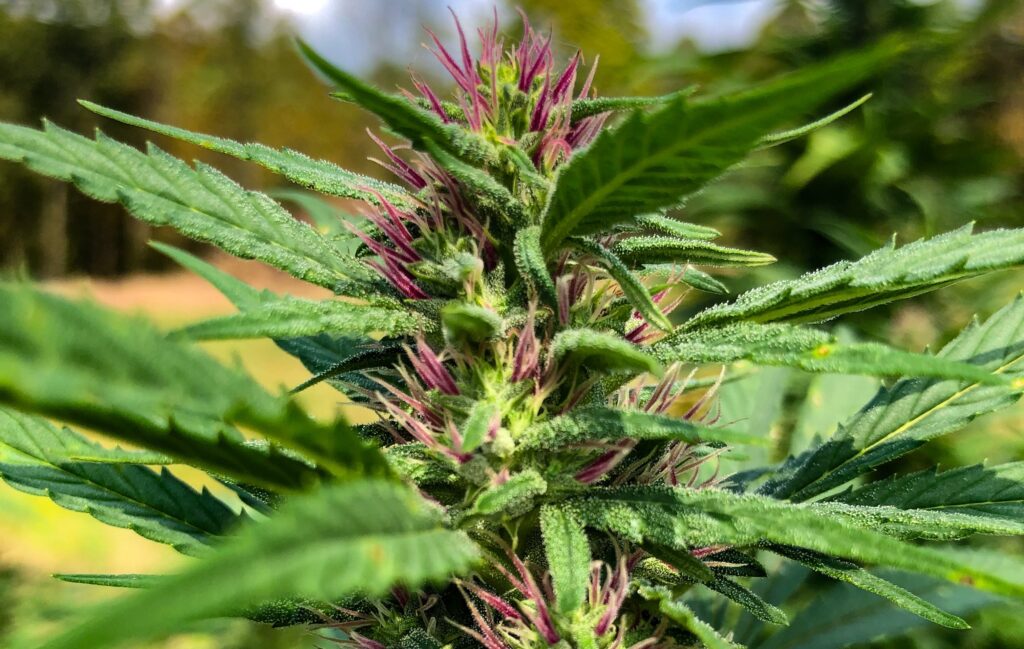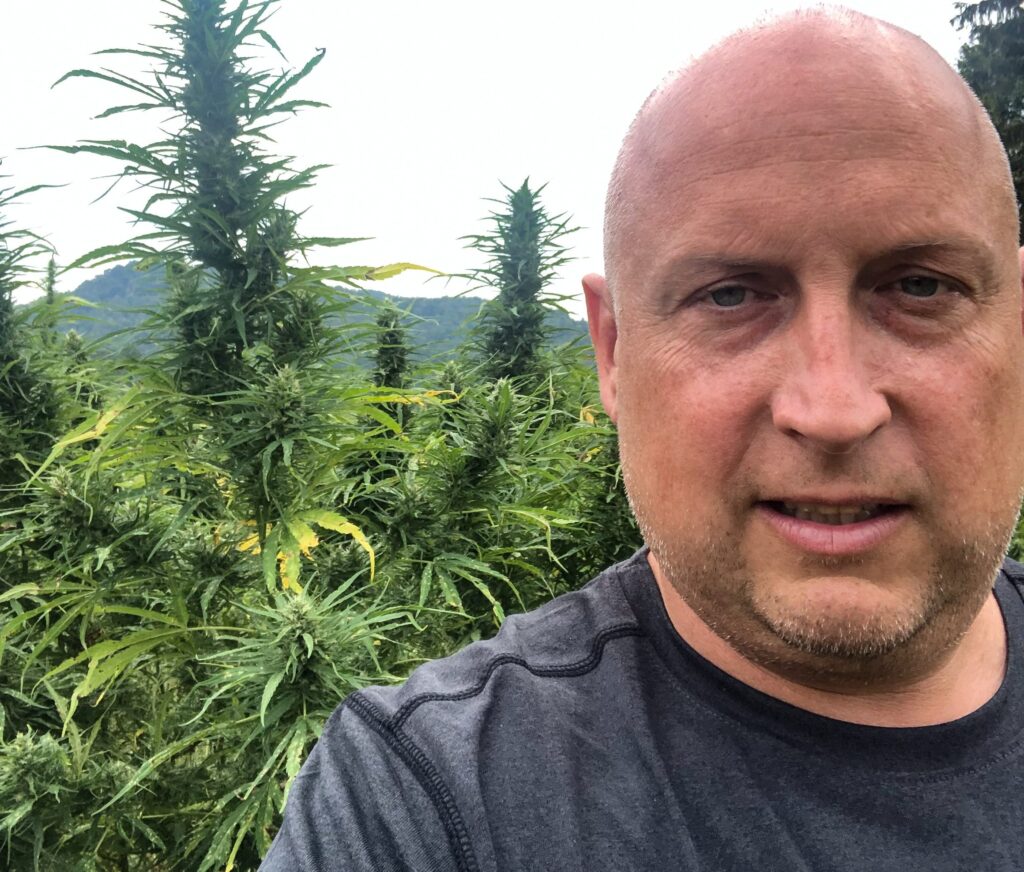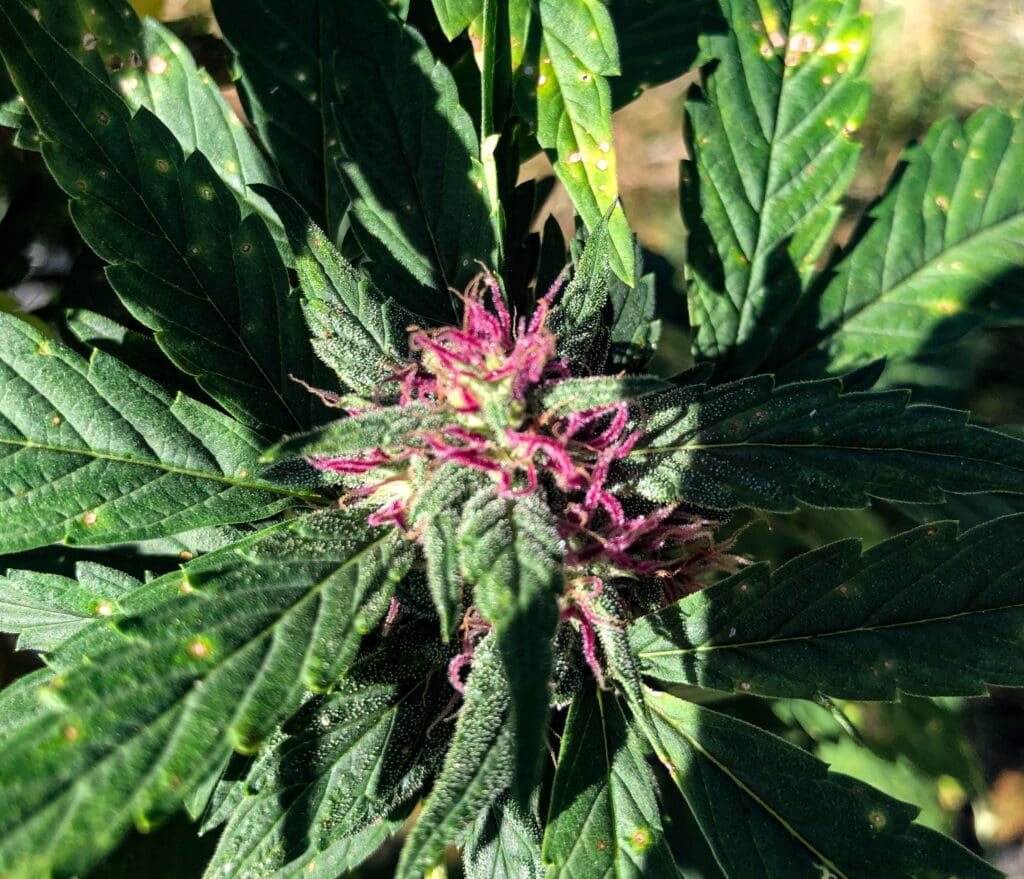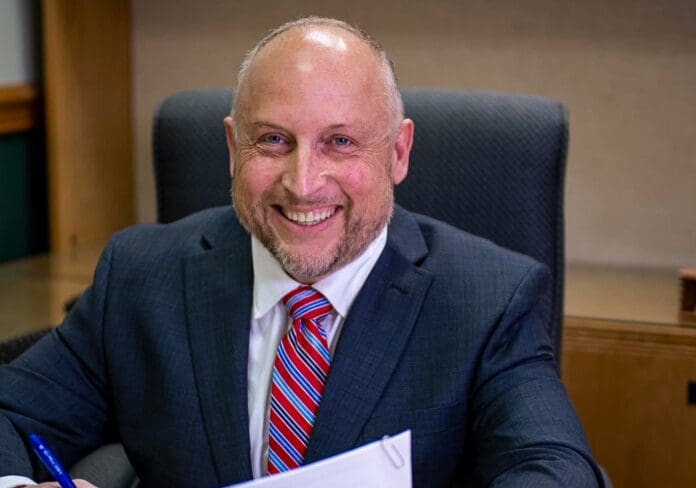Instead of the 5 percent cut to the state’s personal income tax proposed by Gov. Jim Justice earlier this year, lawmakers in West Virginia settled on a 2 percent decrease this week during the special session this week in Charleston.
Bill Flanigan believes the Mountain State can do better.
“They didn’t do the 5 percent cut because they’re worried about revenues, and they’re concerned with it because West Virginia is too dependent on the same fossil fuels that have been under attack by the current administration in Washington, D.C. right now,” he insisted. “It’s my belief our state is leaving million and millions of dollars on the table for our border states to take advantage of.
“We took the step to offer our residents medicinal cannabis so they could make those decisions for themselves,” said Flanigan, the Republican candidate in the race to represent the Fourth House District. “It’s time for us as a state to move forward with other opportunities involving cannabis because there’s money that can be made that can allow us to give our residents the tax cuts they deserve.”
Medical cannabis bills were introduced in West Virginia in each year between 2010 and 2015, but it wasn’t until Senate Bill 386 was signed into law by Justice on April 19, 2017, that the program’s development began. The legislation created the Medical Cannabis Act, permitting the use of cannabis for certified medical use by West Virginia citizens.
It wasn’t until July 1, 2019, however, when the effects of the law would allow the state to issue the patient and caregiver identification cards necessary to obtain medical cannabis. The original version of the law was amended, Flanigan recalled, and the changes erased the potential for additional tax dollars.
“Our state has two things going for it when you talk about grow farms for hemp and cannabis, but to this point no one seems to want to have serious conversations about those possibilities,” said Flanigan, a former delegate who reported part of Monongalia County in 2016. “We have incredible soil here in West Virginia, and out climate is incredible, too, when it comes to growing hemp and cannabis. I know those things because I was involved with an 11-acre hemp farm in Flemington, W.Va., in 2018.
“The plants just took off the second year. We had some plants that were 9 to 11 feet tall and produced as much as 80 pounds of product,” he explained. “We didn’t use any fertilizer either. That was all natural growing, and the plants were used for CBD harvesting.”
Over the past five years, the global market size of the CBD, or cannabidiol, industry was valued at $7.71 billion last year, according to Yahoo Finance. The same source predicts the CVBD market will increase to more than $36 billion in less than a decade.

“We extracted the CBD off of the hemp buds and used that product for the making of the medicines. From what we grew, I know there were creams and some solid medicines that were produced, and we heard a lot of success stories, I can tell you that,” Flanigan explained. “One man told me the creams allowed him to walk without a cane for the first time in years. Those are stories you want to hear.
“That business didn’t last, though, because we ruined the laws in West Virginia. I helped (former member of the House of Delegates) Mike Manypenny write the hemp law in our state years ago, and we believed we had the best regulations in the country at that time, but others came in and changed it,” he said. “We had the THC level set at 1 percent, but others reduced it to .3 percent because that was the federal level and they cowered to it.”
The differences in THC levels made all the difference on the start-up’s bottom line.
“We set the law at 1 percent because, at that level, the relief from the medicines were far more effective. At .3 percent THC, the effectiveness pretty much disappeared and the hemp industry in West Virginia became useless to the CBD industry,” Flanigan explained. “We can make a lot of products from hemp, like paper and rope and even toilet paper. Those are great products, but if we raise that .3 back to 1 percent, then we can get back our CBD extractions.
“The 1 percent returns the profitability to the process,” he reported. “There are different types of THC, too. There’s Delta 8, Delta 9, D-10, TCA, TECV, and TCA is considered one of the best pain relievers in the world and it’s not addictive at all. But people don’t take the time to understand the details. They just hear ‘THC’ and shut it down.”
Tetrahydrocannabinolic acid (THCA) is a type of chemical called a cannabinoid in the cannabis plant that may have potential medicinal use. It’s also popular because you can heat it to change it into another type of cannabinoid, tetrahydrocannabinol (THC) or delta-9 THC.
Flanigan was diagnosed with testicular cancer in 2007 and underwent several surgeries over the next seven years. Finally, in 2015, his oncologist prescribed chemotherapy, and he didn’t hide the fact he self-medicated with cannabis at the time.
“When I was diagnosed with testicular cancer, I immediately was placed on so many different medications. But after I ate some THC cookies when I was going through chemo, I was able to set aside nine bottles of pills,” Flanigan said. “I’m just one example, I know, but it was me. I know what I felt and I know what the THC did for me.
“After me and Mike Manypenny wrote the law that involved the cannabidiol, we estimated the industry could generate as much as $400 million in the first year. I don’t know what it would be today because of the amount of time that has passed since and because of what the bordering have done, but it would be better than the zero we’re generating now,” he said. “It’s all around us so I believe it’s time for us to finally benefit as a state and as a people.”

All Legal Like
The adult use of cannabis has been legalized in 24 states, three U.S. territories, and in Washington, D.C. Another seven states, according to The Associated Press, have decriminalized its use.
Voters in Florida and North and South Dakota will vote this November 5th on legalizing adult-use cannabis, and Nebraska residents will cast ballots for or against medical cannabis the same day.
Adults-use cannabis is legal in Ohio, Maryland, and Virginia, and medicinal cannabis is permitted in Pennsylvania and Kentucky.
Flanigan, if elected by House District Fourt voters in Ohio County, would support the legalization of adult-use, or “recreational” cannabis in West Virginia.

“When it comes to cannabis, though, I’m not a fan of the term ‘recreational’. Instead, I believe in the ‘Adult Use’ reference because that’s what we’d be talking about. Adult use. Just like alcohol and other products that lawmakers have deemed OK for us when we reach a certain age,” he said. “All of the states that border West Virginia have adopted medicinal cannabis, and three have approved adult-use laws, too.
“So, once again, we’re behind the eight ball on cannabis just like we’ve been behind our bordering states with so many other revenue-generating initiatives,” he insisted. “I’ve heard our future governor, Patrick Morrissey, said that he wants to examine what those states are doing that we aren’t so we can talk about what we can do to make us better. I think it’s a great plan.”
One reason West Virginia lawmakers continue to cite when explaining why they have not yet supported the legalization of adult-use cannabis are the driving laws in the Mountain State pertaining to operating motor vehicle while under the influence of controlled substances. Flanigan, however, suggests West Virginia code follow what nearly half of U.S. states have approved already.
“I know those kinds of tests are on their way, and that’s fine, but we have to understand there’s so many products out there already that can have an adverse effect on our driving. Take NyQuil for example. Those over-the-counter products make you drowsy very quickly after taking it, but there’s no test for that if you’re driving on it,” Flanigan said. “It’s all about finally making sense of it all and doing what the other states have adopted. It’s that simple.
“We know there are medicinal benefits from using CBD medicines and we know we can grow the product, perform the extraction, and generate revenue all here in West Virginia,” he added. “There’s no reason not to capture that revenue, and it would go a long way to diversifying our economy here in West Virginia.”


